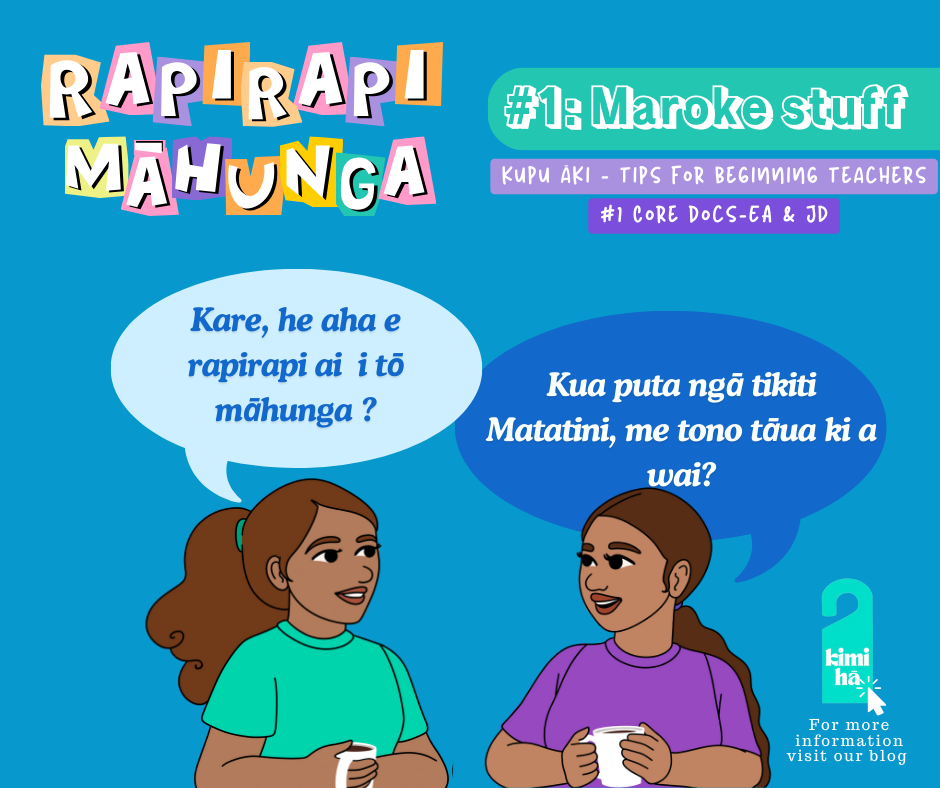
#1 Maroke but essential...(Things I wish I knew as a 'new' teacher...)
Share
Tūāpapa: Foundation
Kia mauri tau ai, me whai tūāpapa...
First things first-before Marautanga documents, Te Reo Matatini documents, Assessment tools etc, key documents for pouako/kaiako starting out in their new careers should include:
Your Employment Agreement and Job Description
To many, this is common sense, run of the mill stuff however there are those for whom their first teaching position is their first job and who may appreciate some info, and there are also colleagues who just never had the time or inclination.
The following are simple explanations of both:
Employment Agreement
Spells out all your entitlements and includes information relating to leave, salary scales, work hours etc. It really pays to have a good read through this document and save a copy in your online files.
Job Description
Outlines your roles and responsibilities, key characteristics required to carry out your role effectively among other content relevant to your specific kura/organisation.
If you need an e-copy/refresher, just follow the link below.
Helpful information to know beforehand is:
- Tō momo kura=Primary/Secondary/Area school?
- Collective Agreement/Individual Agreement?(Do you belong to a union? PPTA/NZEI?)
- Tō tūranga=Teacher/Senior Teacher/Principal
Hono-i tua/Pae hono:
https://www.education.govt.nz/school/people-and-employment/employment-agreements/
JD:
You will have signed this document when offered your position. If you've misplaced your signed copy, ask your tari administrative staff-they know everything.
Actions:
1. Create a new folder and label it something that ensures you prioritise the contents ('Maroke Stuff' pea...🤣)
2. Download a copy of your EA and save to your folder
3. Locate your JD-scan and save to your folder
4. Outline all the kaupapa in the year that are important to you/your whānau and therefore your hauora, then plan your leave accordingly in line with your EA, and Kura specific Tikanga.
Ko te tūmanako ka whai hua ēnei kupu.
Ko ngā manaakitanga nui ki runga ki a koe, ki a koutou.
"He tānga manawa hai kimi hā"

